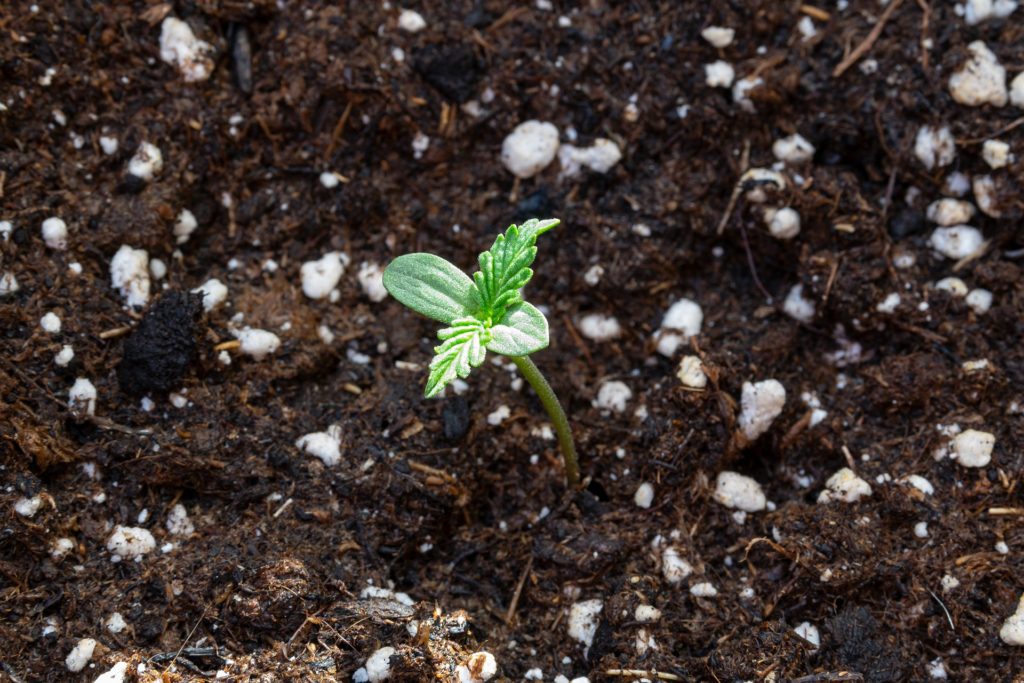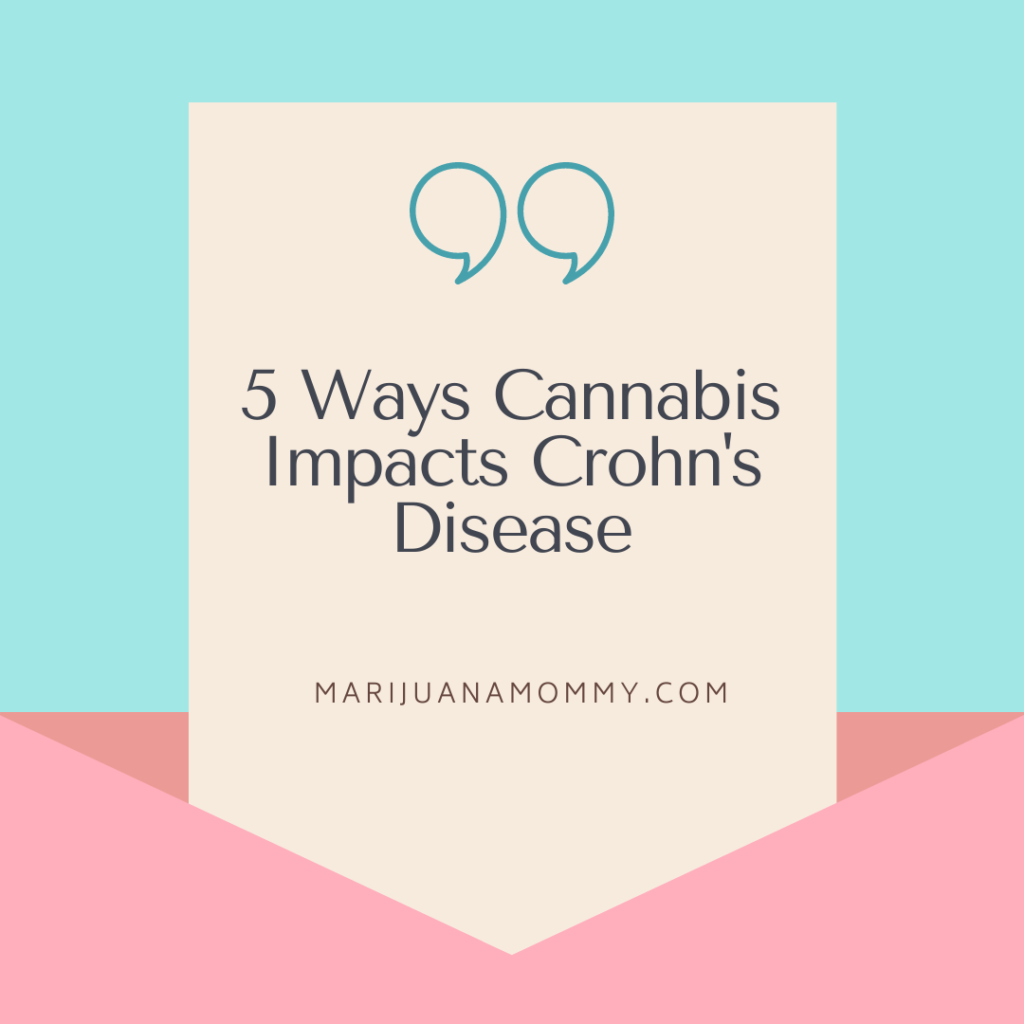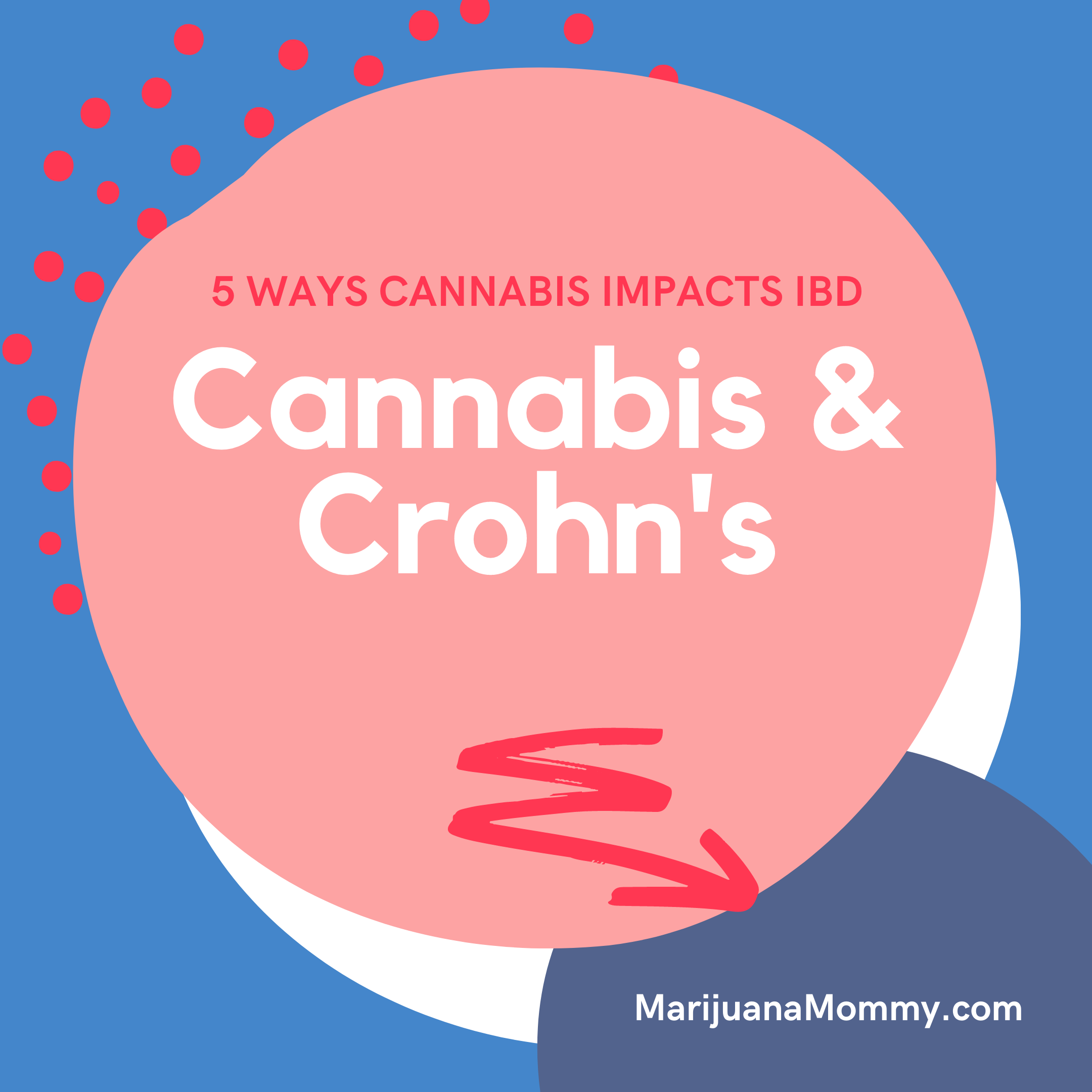This website is informational and cannot diagnose or treat illness or disease. Medical marijuana should be used under the direction of a licensed healthcare provider. This site contains advertisements. If you click a link and make a purchase, MarijuanaMommy.com may receive a commission.
How Does Cannabis Affect Crohn’s & Inflammatory Bowel Disease?
Often patients with serious chronic issues benefit from adding cannabis to their healthcare regimen. This is especially true for patients with Inflammatory Bowel Disease (IBD) and Crohn’s Disease. Some patients with mild cases may be able to eliminate pharmaceuticals completely. Many others successfully utilize cannabis in combination with pharmaceuticals.
Anecdotal evidence and research show cannabis may affect the symptoms of Crohn’s disease in a variety of ways thus enhancing the patient’s quality of life.
Here five different ways cannabis can impact Crohn’s disease and Inflammatory Bowel Disease.

Nausea, Vomiting, and Diarrhea
Patients with Crohn’s Disease often suffer from a variety of distressing symptoms. Nausea, vomiting, and diarrhea are frequently among the most disabling symptoms a patient may endure. For many patients, episodes of nausea, vomiting and/or diarrhea can be completely debilitating.
Cannabis is famous as an antiemetic. It’s highly valued in oncology for its effects on chemotherapy-associated nausea. Ample research and anecdotal evidence show cannabis can decrease episodes of nausea and vomiting. While a 2014 Canadian population study found that 28.6% of patients with IBD reported improved diarrhea after beginning a cannabis regimen.

Pain
Patients with IBD and Crohn’s Disease frequently report episodes of pain. Some episodes may be localized while others may be widespread.
A 2014 study examined the effects of cannabis on patients with Irritable Bowel Disease who used cannabis. 83.9% of the participants reported cannabis improved abdominal pain, 76.8% reported that cannabis improved abdominal cramping, and 48.2% found cannabis improved joint pain as well.
It’s important to note that this particular study researcher also noted cannabis users with Crohn’s disease more often had worsening disease than people who did not use cannabis. We don’t know if cannabis masks the symptoms of Crohn’s disease, or if people with more serious instances of the disease are more likely to use cannabis.
Inducing Remission
Achieving remission is often a goal of treatment for patients with Crohn’s Disease and IBD. Remission is when the disease is no longer in an active state and symptoms recede.
A small-scale placebo-controlled study conducted in Israel in 2013, found 10 out of 11 participants experienced a significant positive clinical response after beginning a medical cannabis regimen. 5 out of 11 participants went into complete remission after 8 weeks of regular cannabis administration.
Similar research was presented in 2018, “In a randomised, placebo-controlled study, researchers from Israel have shown that cannabis can produce clinical remission in up to 65% of individuals after 8 weeks of treatment, but that this improvement does not appear to result from a dampening down of the underlying inflammatory process.”
There’s no evidence to suggest cannabis decreases gut inflammation directly, but cannabis is coveted for its anti-inflammatory properties in general.
May Mitigate Complications
Many people live successful happy lives with chronic Inflammatory Bowel Disease, but in some cases, the disease process can result in complications that can be dangerous and deadly.
A retrospective cohort study in 2019 found cannabis users were less likely to have active fistulizing disease, intra-abdominal abscesses, blood product transfusions, colectomies, and parenteral nutrition requirements.
The study concluded that “cannabis use may mitigate several of the well-described complications of Crohn’s disease among hospital inpatients. These effects could possibly be through the effect of cannabis in the endocannabinoid system.”
Another study found “ Fifteen of the patients had 19 surgeries during an average period of 9 years before cannabis use, but only 2 required surgery during an average period of 3 years of cannabis use. Again, much more research is needed to truly determine the effects cannabis has on Inflammatory Bowel Disease, but the current research available is promising.

Increased appetite
Weight loss is another challenging symptom experienced by many patients with Crohn’s Disease and IBD.
One of the most famous effects of marijuana is “the munchies”. It’s true that marijuana can act as an appetite stimulant. In animal models, researchers found delta 9 THC triggers hunger hormones.
It’s also interesting to note, that many researchers theorize cannabis may help maintain a healthy weight as studies have found chronic cannabis users generally have a healthier BMI than nonusers.

Conclusion
Many patients report benefits from cannabis including a reduction in nausea, vomiting, and diarrhea, a reduction of pain, and an increased appetite. Patients also often report that cannabis may help mitigate the complications of IBD, and in some patients, it may even induce or maintain remission.
It’s also important to add, that some physicians have suggested cannabis may mask the symptoms of worsening disease and careful management by a healthcare provider is needed.
Much more research needs to be done to fully understand how medical marijuana impacts Crohn’s disease or IBD. As always, new patients should consult with their healthcare provider before adding new substances to their healthcare regimen.

Trending Now









